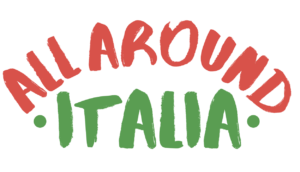How to evaluate and choose the best study abroad program for you.
Are you considering studying abroad in Italy to learn Italian?
Even before starting college, I knew I wanted to spend a semester in Italy. Not only did I want to learn more about my family’s roots, I wanted to learn Italian! To really learn it: to be able to understand, communicate, read, and write.
When deciding where to study in Italy, I did tons of research, solicited opinions, and carefully weighed my options. As this experience would be once in a lifetime, it was important to find the best program to support my goals.
This post is a guide on how to select the right study program for YOU. The steps have been inspired by my personal experience, the experience of friends, as well as by my time managing university relations for an Italian company.
Let’s get started!
Table of Contents

Identify the Ideal City or Town
Before combing through the details of programs, identify which cities/towns you may want to live in. To do this, you’ll want to consider a few things:
Who resides there, and how much focus is there on tourism?
Who is in the city or town? Mainly families, students, tourists?
What type of atmosphere will best encourage you to talk with others and make friends? A town with a more family-oriented vibe or a city bustling with students?
I’d recommend trying to choose a place with relatively limited tourist flow. This will ensure you’ll regularly hear Italian around you and that locals won’t be overly accustomed to speaking English with foreigners.
How big is the city or town?
Big vs. small; one is not better than the other, but they each have their pros and cons.
In a small town, you’re likely to bump into people more often and may have an easier time meeting others.
Larger cities, however, likely have more to offer in terms of volunteering, social groups, activities, or internships, which can be excellent opportunities for meeting people and getting experience.
Which environment would you thrive in based on your personality and preference?
How well connected is the city or town to the rest of Italy?
In Italy, dialects and regional differences are alive and well! The general population only began to speak standard Italian around the 1950s with the diffusion of television.
If you’d like to travel to regions with different dialects and accents, you’ll benefit from being based somewhere with a train station. For example, I love the Amalfi Coast, but it is certainly not the easiest place to get to and travel from.
If you prefer to learn the Italian spoken in one place and don’t care too much about travel, then you may elect to be somewhere more remote and removed.
Evaluate the Academics
Although learning while abroad certainly does not only happen in a classroom, it is wise to make the most of all formal class and study time.
Are classes in Italian?
In general, study abroad programs offer a course on Italian language. In addition, students must take classes related to their major or home university’s curriculum. When in Italy, I highly recommend you take all your classes in Italian.
Especially if your Italian is beginner level, the notion of taking all classes in Italian may seem intimidating. I promise you, though, that this is one the best ways to fast-track your language skills. Moreover, most American universities allow study abroad classes to be for pass/fail credit, meaning your GPA won’t be at risk if you don’t ace every class. But who knows? Maybe you will ace them all!
To motivate you, take me for example … I was too intimidated to take Economics at my American university and then wound up taking it in Italian at the Università di Bologna. Trust me, if I could do that, you will be fine!
Are classes at an Italian university?
If you should be taking all classes in Italian, what better place to do it than directly at an Italian university?
In addition to having a multitude of Italian-language classes from which to choose, there are two other major benefits to studying at an Italian university: 1) you will meet Italians and 2) you will have a cultural experience.
Conversations and friendships with Italian classmates may end up being of greater value than the content of courses. If you study at a university for foreigners, you will mainly meet foreigners in class. If you study at an Italian university, you will primarily meet Italians in class.
As for the cultural experience, a key part of learning a language is understanding culture. Italian universities run their lessons and exams quite differently than we do in America. Their grading system is out of 30; most grades are based on a single exam; the exam is typically an oral exam.
Having to take an oral examination – sometimes in front of your classmates – will motivate you to improve your Italian. Equally importantly, you will experience what going to university in Italy really means. You can’t truly know language without cultural context.
Does the program require pre-work before arrival in Italy?
Although no one necessarily likes to do homework, if a study abroad program requires you to do some before you go, it is probably a good indication the program is serious about language skills. Plus, pre-work is a good way to get your Italian up to speed before departure.
Ask about pre-work when selecting a program … and then be ready to actually do the work!
Investigate Who Participates in the Program
Who else signs up for the program? Talk to the coordinators and find out how many other students enroll and what their main goals are. Better yet, ask to be connected with a few former participants to hear about their experience. Evaluate if language improvement seems to be the top priority.
If everyone is focused on language improvement, you will find ways to work together and plan activities around your common goal. If language learning does not seem to be the top priority for most participants, you will have to “go it on your own”, which will be harder.
My fellow American study abroad participants became a great support community. We decided to speak only in Italian together. We introduced each other to our Italian friends (how I met my husband!). When someone was having a rough day with the language, we offered encouragement. Being surrounded by equally motivated people pushed me to get better – and made the journey more fun!
Find Out How the Program Helps You Meet Locals
Do housing arrangements support language improvement?
Who you live with can be key in helping you learn Italian. Make sure the program puts participants in houses where you will have to speak Italian.
Well-organized homestays with Italian families or living in an apartment with Italian roommates can make an exponential difference in your exposure to Italian language and culture.
In the program I participated in, my Italian roommates were obligated to speak Italian with me at all times. They were also given a stipend to do activities with me outside of the house. This made getting to practice Italian on a daily basis very easy and enjoyable!
What tandem or language buddy opportunities does the program facilitate?
One of my favorite parts about my study abroad program was the “language buddy” component. Each American student was assigned an Italian student who was available to help them practice the language and adjust to living in Italy. It was so helpful to be in touch with a local from Day One. Many students ended up forming great friendships with their buddy, as well as with their buddy’s friend group.
Not every program offers language buddies, but many have structures in place to support introductions with Italians. Some run language exchange/tandem nights regularly. Others give language- support responsibilities to students’ Italian roommates.
Make sure to ask what any programs you are considering do to help connect you with locals.
Decide the Timing of Your Stay
As you can assume, the longer you are able to stay in Italy, the better you will get at Italian. It takes a month or so to get acclimated to your surroundings and even longer to build relationships.
If you can study abroad for a year, do it! However, I realize this is definitely easier said than done.
If you are going for a semester (like I did), I recommend going in the spring so you don’t have the pressure of immediately going home for the holidays and next semester of classes. Spring semester gives you the option of travelling throughout Italy at the end of the program, staying with Italian friends, or working a summer job or internship in Italy.
If your only study abroad option is a summer program that lasts one or two months, it is certainly better than not having the opportunity to go at all. Check out the post Learn Italian in Italy to make the most out of your time abroad.
Don't Forget about Scholarships and Financial Aid
If you find your ideal program but the cost seems prohibitive, don’t fret! Most universities offer financial aid packages for eligible students. Scholarships are also likely available from your school and from Italian or Italian-American organizations. Applications can take time and effort to complete, so just make sure to plan ahead.
Good luck, and have fun exploring programs!
If you think I’ve forgotten anything that’s important to consider when preparing to study in Italy to learn Italian, please comment below.
After you’ve made your decision, applied, and been accepted, it’s time to prepare for your time in Italy at your perfect program! Check out this post to make the most of your time in Italy to become fluent in Italian.



